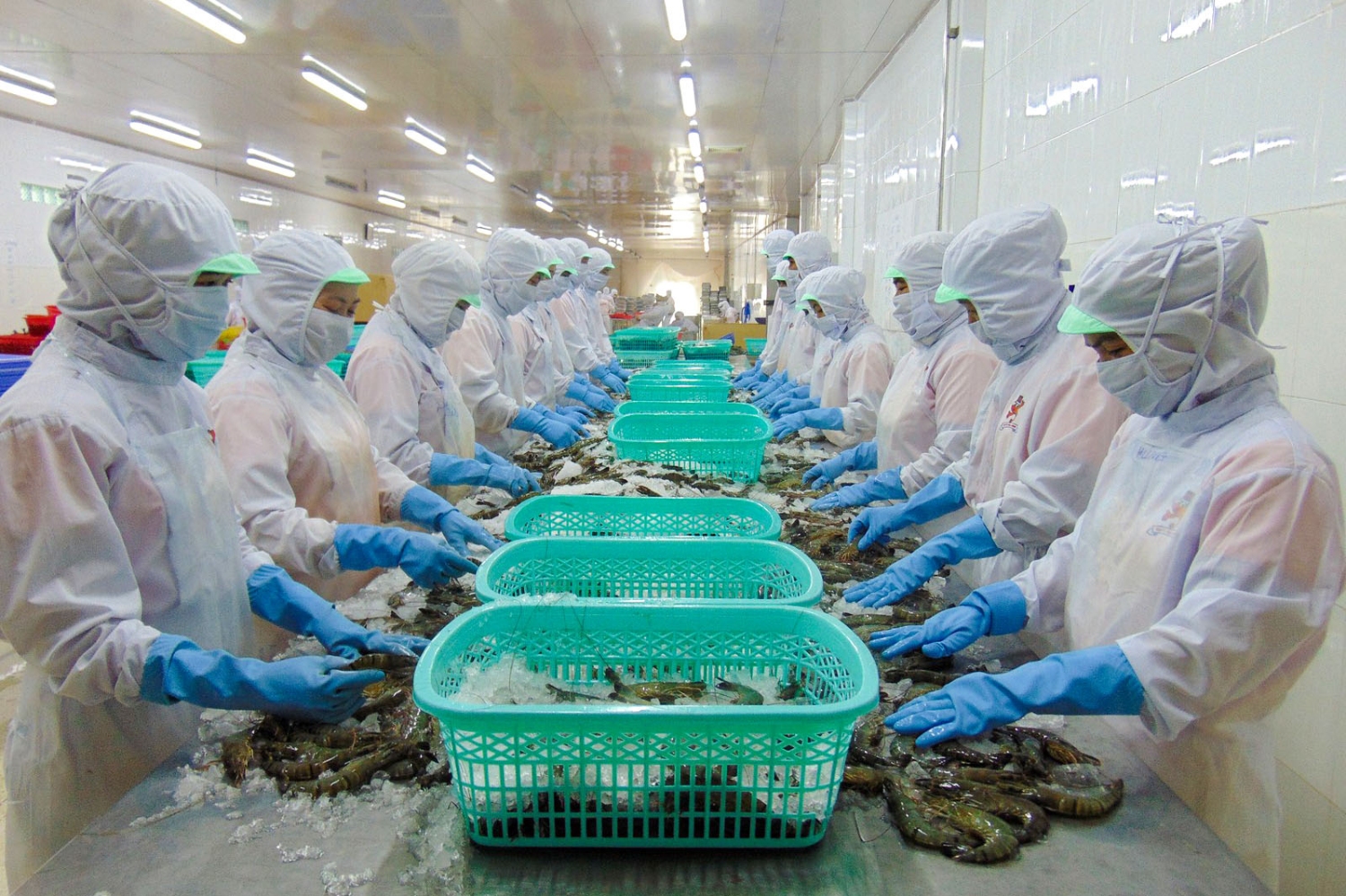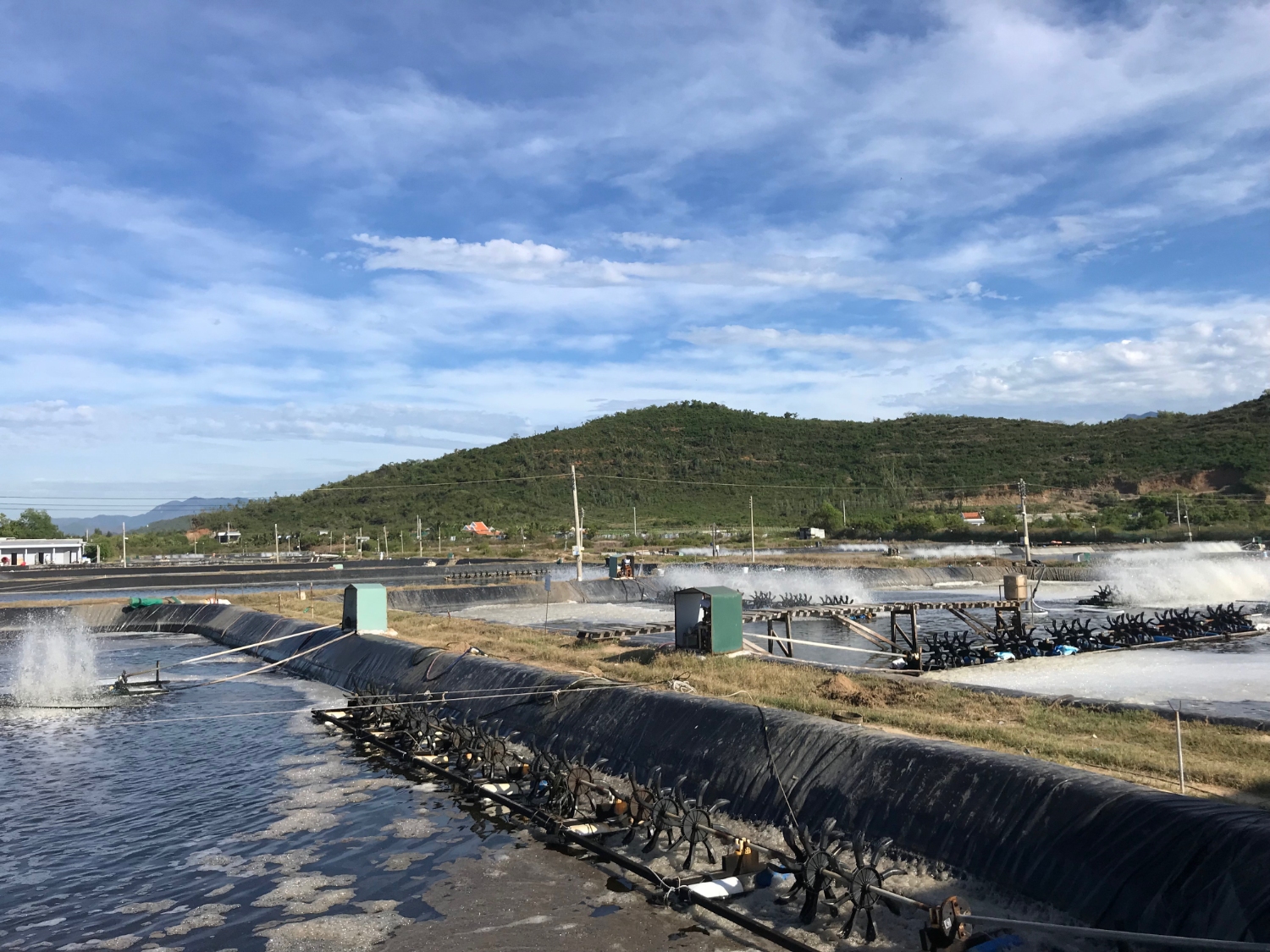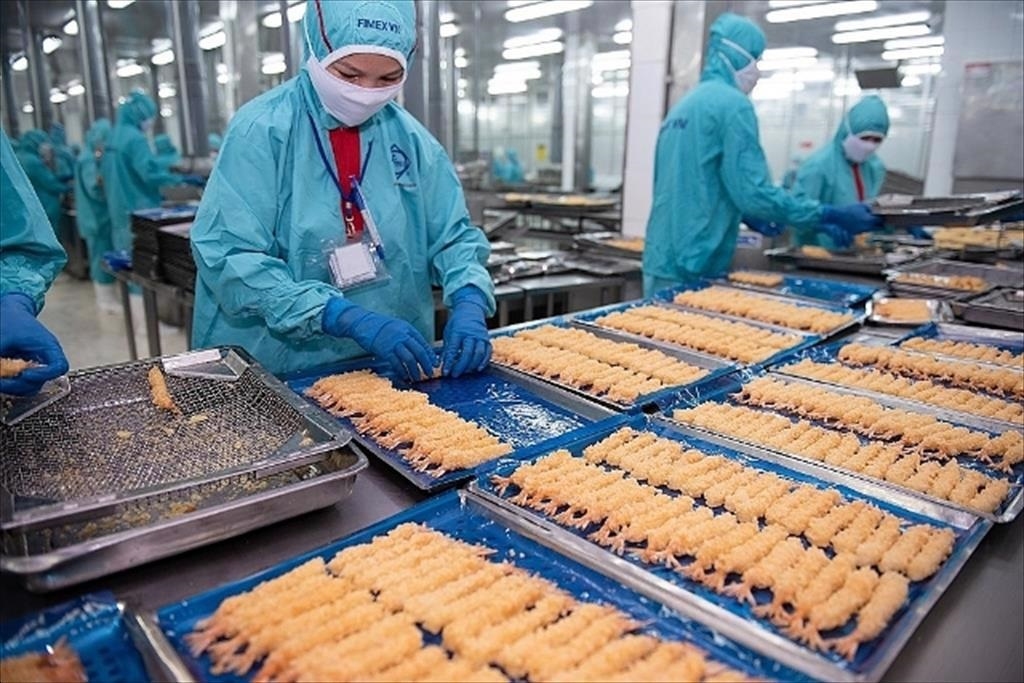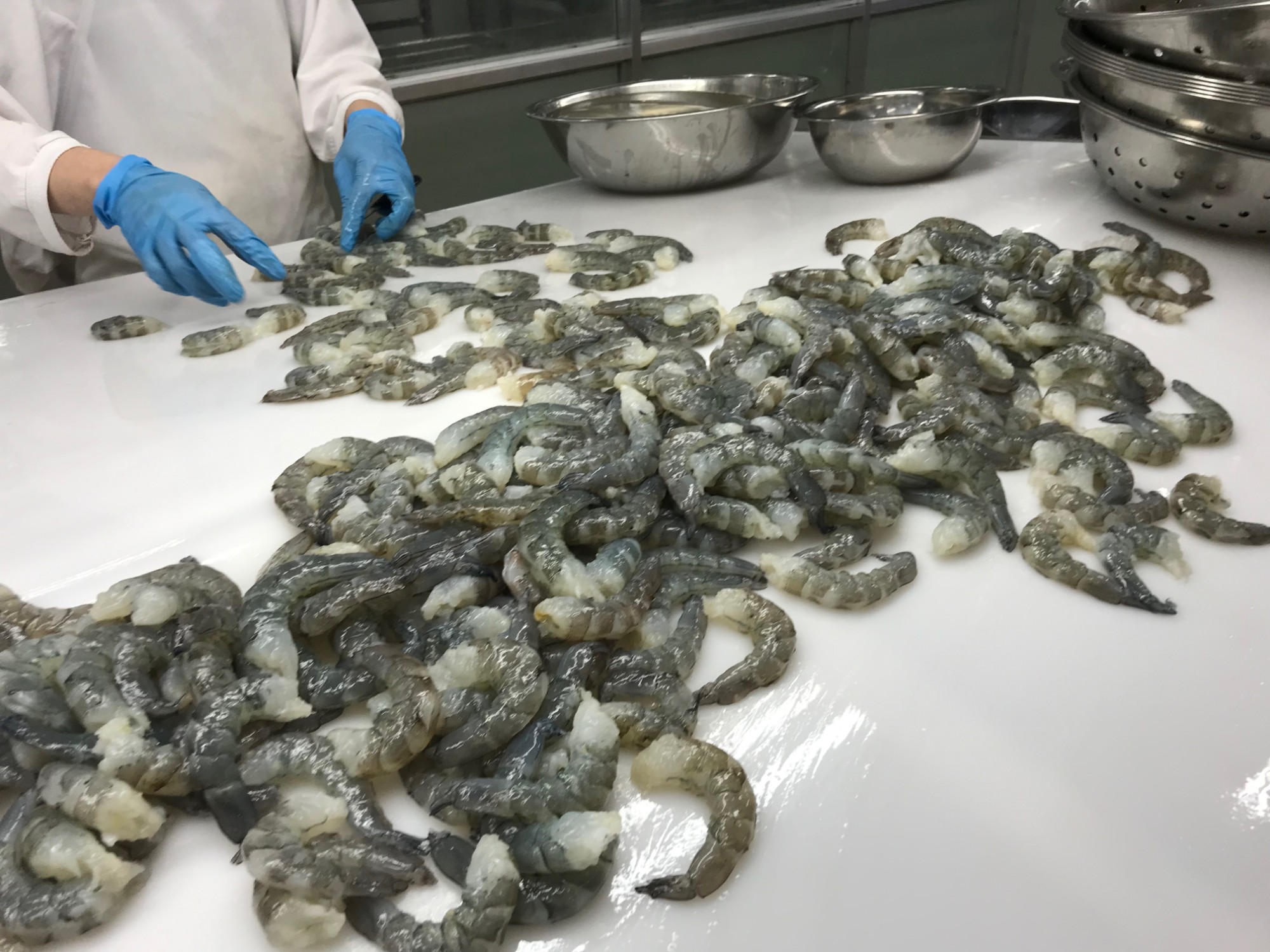
Do not let interrupting the workforce
Do not let interrupting the workforce

Workers at a shrimp processing factory.Photo: BringingItHomeLM
Implementing social distancing according to Directive 16 of the Prime Minister, not only in Bac Lieu but also most localities have encountered many difficulties and problems, especially the problem of meeting requirements of epidemic prevention and control while not disrupting the supply chain of goods, stagnation of production and business activities. In particular, a very difficult problem is maintaining the workforce of production workers in factories and enterprises.
According to information reflected from businesses, especially seafood processing factories, the number of production workers is currently decreasing by about 40-50% due to the implementation of social distancing according to Directive 16 of the Prime Minister. government and a number of other reasons.
First of all, the issue of transportation, because of the implementation of Directive 16 and a number of local guiding documents, especially the regulations on distance, limiting the travel of 2 people on a means of transport. This regulation makes it impossible for many workers to come to the workplace like a husband and wife who work in the same company but only have one vehicle in the house. Or workers in the same hometown, go to work together to reduce the cost burden. Now can not go together, no other means, forced to stay at home. Another problem that causes difficulties, related to movement is the province's regulation to limit leaving the house from 5 to 18 hours. While currently, in order to meet the production plan in the absence of workers, many businesses have to work overtime, workers cannot go home before 6pm, so they face many difficulties in implementing the "dual goal". ”: while ensuring safety against the COVID-19 epidemic, while maintaining production and business. Many factories have backlog of raw materials due to a lack of workers, facing the risk of late contracts with partners, especially foreign partners, putting great pressure on businesses.
Another difficulty is that the source of raw materials in the province has decreased sharply because farmers have reduced their stocking density, agents have difficulty in transporting, providing feeds and treatment drugs. Besides, businesses have difficulty in collecting and transporting to agents, factories and places of consumption. While the source of raw materials outside the province is abundant and the price is sharply reduced, businesses are entangled in the collection and transportation to the province because many checkpoints have not been instructed and promptly implemented the newly issued directive information. For example, transport truck drivers have to test samples continuously, workers who go to another province have to be isolated in concentration, limited in testing time (only during office hours), test samples for people out of the province. Not enough, have to wait in line. It is even more difficult for small and medium enterprises, because in many places, especially the agents that collect raw materials at the checkpoints require a variety of papers; The transportation process is not confirmed by the local and the market management board when circulating the "passenger card".
In order to solve the above difficulties and problems, the Provincial People's Committee has also issued a document directing to facilitate the management of temporary accommodation for drivers and assistants of goods transport vehicles; The Government directs not to check at the epidemic control points for vehicles with an identification certificate with an expired QR code issued by the transport and transport sector... However, the application and application are still inconsistent. , causing difficulties for workers and businesses. Many companies and businesses that are not eligible, or have conditions, have difficulty in obtaining permits to build and assemble prefabricated houses in order to implement "3 in place" (eating, resting, producing) for workers. .
It is thought that the relevant functional sectors need to promptly guide, propagate and deploy to the checkpoints the latest regulations of the Provincial People's Committee for consistency in application and handling. Avoid the situation that the checkpoints become "bases", bureaucratic, rigid and mishandling the spirit of our State about the "dual goals" in epidemic prevention. And the biggest desire of businesses is that the province needs to quickly let companies, businesses and establishments have access to vaccines.
Kim Phuong
Source: Bac Lieu Newspaper, SEABINA GROUP's translation
Other news
- Early stocking to get good price 21/12/2024
- Shrimp prices rise again in Vietnam, and reach 12-month high in India 28/08/2024
- Vietnamese Shrimp Industry Faces Many Challenges: Farmers Prefer Quality but Cheap Shrimp Seeds 01/08/2024
- Raw shrimp prices fall: Another challenge the shrimp industry must overcome 03/07/2024
- Storms in the shrimp industry may last in 2024 07/05/2024
- Vietnam's Seafood Exports Reach $2 Billion In Q1 03/04/2024
- King of shrimp industry profits in 2023 02/04/2024
- A difficult story for shrimp 11/03/2024
- Shrimp exports face a difficult problem 23/02/2023
- Vietnam’s shrimp exports reached 141 million USD in the first month of 2023 22/02/2023

















